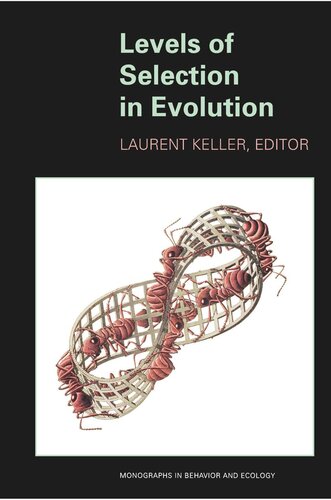

Most ebook files are in PDF format, so you can easily read them using various software such as Foxit Reader or directly on the Google Chrome browser.
Some ebook files are released by publishers in other formats such as .awz, .mobi, .epub, .fb2, etc. You may need to install specific software to read these formats on mobile/PC, such as Calibre.
Please read the tutorial at this link: https://ebookbell.com/faq
We offer FREE conversion to the popular formats you request; however, this may take some time. Therefore, right after payment, please email us, and we will try to provide the service as quickly as possible.
For some exceptional file formats or broken links (if any), please refrain from opening any disputes. Instead, email us first, and we will try to assist within a maximum of 6 hours.
EbookBell Team

4.3
38 reviewsEver since the groundbreaking work of George Williams, W. D. Hamilton, and Richard Dawkins, evolutionary biologists have recognized that natural selection generally does not operate for the good of the group, but rather for the good of lower-level units such as the individual, the cell, even the gene. One of the fundamental problems of biology is: what keeps competition between these various levels of natural selection from destroying the common interests to be gained from cooperation? In this volume twelve prominent scientists explore this question, presenting a comprehensive survey of the current theoretical and empirical research in evolutionary biology.
Recent studies show that at many levels of biological organization, mechanisms have evolved to prevent potential conflict in natural selection. Editor Laurent Keller's aim in this book is to bring together leading researchers from all biological disciplines to outline these potential conflicts and discuss how they are resolved. A multi-level approach of this kind allows important insights into the evolution of life, as well as bridging the long-standing conceptual chasm between molecular and organismal biologists. The chapters here follow a rigorous theoretical framework, giving the book an overall synergy that is unique to multi-authored books.
The contributors, in addition to the editor, are H. Charles J. Godfray, Edward Allen Herre, Dawn M. Kitchen, Egbert Giles Leigh, Jr., Catherine M. Lessells, Richard E. Michod, Leonard Nunney, Craig Packer, Andrew Pomiankowski, H. Kern Reeve, John Maynard Smith, and Eörs Szathmáry.